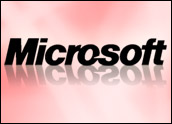
What’s the world coming to? Microsoft lost money in the software business lastquarter — the first loss in a decades-long string of positive earnings from the world’sbiggest software company. Sheesh!
Yes, there were extenuating circumstances, but the loss signals the breadthand depth of the impact that the tablet is having on the hardware market — the iPadtablet, to be precise, and its economy size, iOS-sharing little brother, the iPhone. Fora quick slide show on iPad’s penetration and adoption check out this presentationfrom Business Insider.
Last time I asked if hardware was becoming sexy again and why. The answersseem to be “Yes” and “Because tablets have reached a new price point that opensup more emerging global markets to computing.”
Tablets and their near kin, smartphones, are defining a global computingplatform for the next decade and beyond, promising first-world informationaccess to many people formerly left in the dust.
The writing was already on the wall when analyst firms IDC and Gartner recentlydocumented a stall in the PC/laptop forward momentum. Lower PC salesmeans fewer operating system sales and all that goes with it.
Microsoft’s Mojo
To be sure, tens ofmillions of units are still being sold this year, along with operating systems andproductivity software often bundled in. But growth has stalled as new customersin emerging markets are voting to type on Gorilla Glass over keyboards.
Every paradigm goes through a predictable life cycle, and the computer operatingsystem dependent on hardware sales is another example, not an exception.Microsoft, Intel and others invested heavily in thin, ultra-light laptop machinesas the next thing that would protect the franchise and compete with tablets, butthey were still too expensive and ultimately not cool enough.
If Microsoft expectsto get its OS mojo back, it will need to cajole its hardware partners into reallybeing competitive with tablets.
Right now, everything is going the way of the tablet, and Apple can almost do nowrong. Even when a European judge made a findingin favor of Samsung in a patent dispute with Apple recently, he declared theSamsung gear “not as cool” as Apple’s and therefore not infringing on Applepatents. That’s just amazing.
Windows 8 comes out later this year, and Microsoft has introduced a tablet ofits own, the Surface. The game is far form over, but the latest brush with realitysuggests Microsoft might have been prescient in going “all in,” as Steve Ballmersaid of the company’s approach to cloud computing some time ago.
Microsoftis at some intermediate point in its journey from vendor of licensed software toringmaster of a giant subscription economy. Like many companies in similartransitions, the going isn’t always smooth, but if anyone can pull this off, it oughtto be the guys in Redmond.
When I’ve spent time with the Redmond gang over the last couple of years I’vebeen impressed with how much they get it — not just at a high level, but throughoutthe organization. “All in,” Azure, and retail stores suggest a company thinking itsway through the changes. And analytics and social networks suggest they reallyget it. Maybe “all in” should be replaced by “we get it,” or better, “we get you” — but notquite yet.
On a cautionary note, getting to the cloud or to tablets won’t be enough; thisis a business model change that every company has to deal with, and Microsofthas done more than many already. Now, Microsoft’s partners have to pick up thegauntlet and evangelize more than ever.
Innovation and Creative Destruction
On Wednesday, Zuora will release a Fireside Chat video discussion that Iam participating in. It will be all about the cloud and subscriptions, and I expectan important theme will be the attention that subscription companies need topay not to selling but to service and ensuring customer happiness.
And, oh heck, while I am talking about myself, I might as well mention that my new bookis coming out around the same time: The Subscription Economy – HowSubscriptions Improve Business.
While the changes in the industry might be painful for some, they also representinnovation and creative destruction, which is the hallmark of a vibrant economy.
The issue for us is not how to slow down change, but how to embrace and leverageit. Once the election clears out, I think Q4 could be an important turning pointas winners and losers get back to the work of inventing the future and makingmoney.






















































